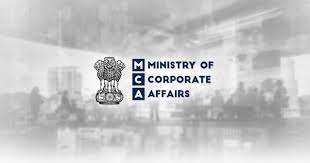Key Points:
- Expanded Fast-Track Process: The MCA proposes amendments to broaden the fast-track merger route under Section 233 of the Companies Act, 2013.
- New Eligibility: Now includes financially sound unlisted companies with borrowings less than ₹50 crore and an auditor’s certificate.
- Flexible Restructuring: Holding companies can merge with unlisted subsidiaries even without 100% ownership; sibling subsidiaries become eligible too.
- Foreign Mergers Integrated: Mergers between foreign holding companies and their Indian subsidiaries will now fall under the main rule.
- Public Consultation: These changes align with the Union Budget 2025–26, with feedback invited until 5 May 2025 via the MCA e-consultation module.
The Ministry of Corporate Affairs (MCA) is set to revolutionize India’s corporate restructuring landscape. On 4 April 2025, the MCA issued a Public Notice inviting comments on a draft amendment designed to simplify and speed up mergers under Section 233 of the Companies Act, 2013. This move is poised to transform the fast-track merger process and significantly benefit the corporate sector.
Enhancing the Fast-Track Merger Process
Current Framework
Under Section 233 of the Companies Act, 2013, fast-track mergers currently allow:
Mergers between two or more small companies, and
Mergers between a holding company and its wholly-owned subsidiary.
Following the 2021 amendment, the process expanded to include start-up companies by adding sub-rule (1A) in Rule 25 of the Companies (Compromises, Arrangements and Amalgamations) Rules, 2016 (CAA Rules).
Also Read- https://vakalattoday.com/compounding-offences-under-section-441-of-the-companies-act-2013-a-comprehensive-corporate-compliance-guide/
Proposed Amendments
The latest draft proposes key changes to further broaden the eligibility criteria for the fast-track merger process:
Inclusion of Financially Sound Unlisted Companies
Eligibility Criteria: Unlisted companies (other than Section 8 companies) with borrowings less than ₹50 crore, no defaults on repayments, and an auditor’s certificate confirming eligibility.
Impact: This amendment extends the benefits of simplified mergers to a broader range of financially robust private companies, reducing reliance on the National Company Law Tribunal (NCLT) route.
Flexible Merging for Holding Companies and Subsidiaries
Current Rule: Only wholly-owned subsidiaries can merge with their holding companies under Section 233(1)(b).
Proposed Change: Holding companies—whether listed or unlisted—will be allowed to merge with one or more unlisted subsidiaries even when full ownership isn’t present.
Impact: This change addresses practical restructuring challenges within corporate groups and facilitates smoother group-level reorganization.
Merging of Sibling Subsidiaries
Current Rule: Subsidiaries under the same parent cannot merge through the fast-track route.
Proposed Change: Unlisted subsidiary companies that share the same holding company will now be eligible to merge via the fast-track process.
Impact: Streamlines internal reorganization and promotes operational synergies within corporate groups.
Integration of Foreign Holding Company Mergers
Current Handling: Mergers between a foreign holding company and its Indian wholly-owned subsidiary are managed under Rule 25A(5).
Proposed Change: These mergers will be incorporated into Rule 25.
Impact: This alignment simplifies cross-border corporate restructuring and reinforces India’s commitment to a more accessible merger framework.
Regulatory Background and Consultation Process
These amendments are in line with the recent Union Budget 2025–26. The MCA is actively seeking public input on these proposed changes, with an e-consultation module available on the official MCA website until 5 May 2025.
For comprehensive details, refer to the following documents:
Public Notice: MCA Public Notice– https://www.mca.gov.in/bin/dms/getdocument?mds=Vl7V8BHbA7gmKAjfxzhiTw%253D%253D&type=open
Draft Notification: MCA Draft Notification– https://www.mca.gov.in/bin/dms/getdocument?mds=KlrEic%252FleYvKv6dibvt8HQ%253D%253D&type=open
Conclusion
These proposed changes signal a progressive step toward making corporate mergers in India faster, broader, and simpler. By extending the fast-track merger process to financially sound and structurally diverse companies, the MCA is not only easing corporate restructuring but also catalyzing business growth and efficiency across the nation. As a corporate lawyer, I view these amendments as pivotal in streamlining M&A activity and ensuring that India remains competitive in global financial markets.
If you have any legal queries or require legal assistance, you can book a consultation with me: “Click Here”

Dipendra Jain is a distinguished professional with extensive expertise in taxation matters and portfolio management services. A fellow member of the Institute of Chartered Accountants of India (ICAI). In addition to his proficiency in taxation, Dipendra Jain provides comprehensive corporate legal advisory services, including company incorporation, MSME Udyam registration, and regulatory compliance. He is also adept at contract drafting, offering meticulously crafted agreements tailored to meet the unique needs of his clients. His versatile skill set and client-centric approach make him a trusted advisor for individuals and organizations seeking expert guidance in financial, corporate, and legal matters.
For any query contact- dkjainca2000@gmail.com
